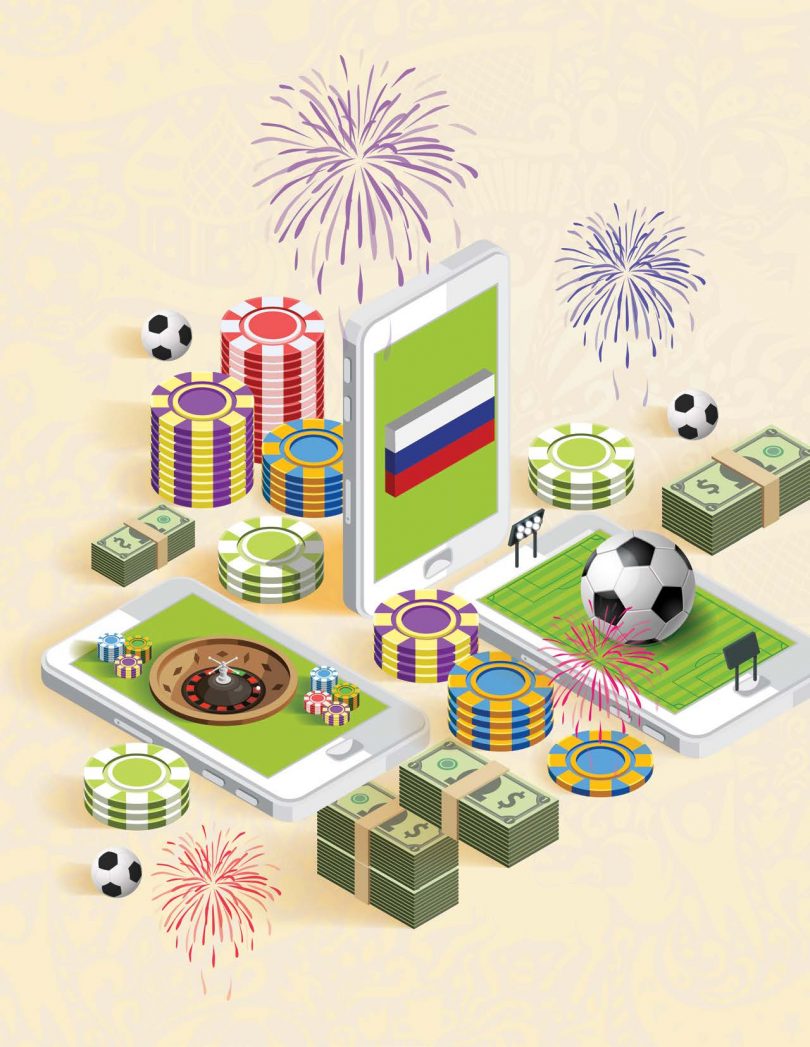With the World Cup taking place only once every four years, finding the magic betting formula is a particularly difficult task. But WGM has identified some trends that could be well worth following.
From the moment the 2017-18 UEFA Champions League victor was decided in Kiev on 26 May, the focus of the football universe shifted to Russia for the 2018 World Cup finals, which kick-off on 14 June in Moscow. The World Cup is the biggest sporting event on the planet – 32 nations from across the globe battling in a month-long tournament once every four years for the ultimate title in international football.
The decision to award the 2018 finals to Russia was, like so many of these decisions over the past half-century, fraught with controversy due to allegations of corruption during the bidding process. Domestic football in Russia has also had its share of controversies since the break-up of the Soviet Union with doping scandals and accusations of state-sanctioned hooliganism to go with numerous incidents of racism and homophobia.
Russia 2018 also looms as a tough challenge for punters. World Cup finals tournaments generate an incredibly small sample of data so long-term analysis is virtually useless. Just 20 of the 32 nations that contested Brazil 2014 qualified for this year’s finals. In a stunning turn of events, four-time champions Italy failed to qualify for the first time since 1958 while the Netherlands, United States, Cameroon, Ghana and Chile also fell short.
Iceland and Panama will be making their World Cup debut in Russia while Egypt, Morocco, Peru and Senegal return after long absences from the finals. Brazil 2014 was characterized by mostly hot and oppressive conditions and venues spread across thousands of kilometers. Neither will be an issue in Russia, where the weather should be mostly mild, while the host cities are all situated in the European part of the country.
The line-up for the 2018 World Cup finals may be incredibly diverse but the tournament format remains the same as used over the past two decades (since France 1998). The 31 qualifiers plus host nation Russia were drawn into eight groups of four. Each team plays three group games with the top two qualifying for the knockout stage. Those 16 play down to a final two, who’ll face off in Moscow on 15 July 2018.
The World Cup is also the biggest global event in terms of sports betting (dwarfing even the NFL and NBA) with the fortunes of sportsbooks all over the world often coming down to a successful tournament in terms of revenue and payouts. Since the last World Cup, Russia has also legalized and regulated sports betting, so this tournament will be a boon for those newly licensed sportsbooks.
Punters will also be familiar with the bulk of markets on offer – from the usual match betting markets to group betting options (to win or to qualify) and overall tournament markets. The Golden Boot winner for the tournament’s highest goal scorer is the most popular of the exotic markets.
As at time of writing, Brazil ($5) and Germany ($5.25) occupy the top line of betting with France and Spain ($7) on the next line.
So how is it possible to compare 32 teams, many of which rarely cross paths expect at this level or in the occasional international friendly? The FIFA rankings are a good place to start. Teams like Uruguay, Colombia and Peru have prevailed after a qualifying campaign against a pair of sides that are ranked in the top five in the world – Brazil and Argentina. In contrast, not a single country from the Asian confederation is ranked inside the top 35 (Iran is best at 36).
The use of methodology opens up some nice betting opportunities in secondary markets such as a side’s most likely stage of elimination. In tournament history, only two Asian nations have progressed beyond the Round of 16 (North Korea in 1966 and South Korea in 2002). Similarly, just three African finalists have featured in the quarterfinals (Cameroon in 1990, Senegal in 2002 and Ghana in 2010). That trend is unlikely to change at Russia 2018.
Expected goals are another method of approaching the World Cup. In contrast to “actual” goals scored, “expected goals” (or xG) are the number of goals a team could expect to score in a match. This is determined by assigning a value to shots on goal, penalties, free kicks, the number of shots, shot location, the in-game situation and the position of opposition defenders.
Let’s use Australia as an example. The Aussies averaged approximately 2.7 xG per game throughout their marathon AFC qualifying campaign while conceding 1.0 xG per game. Their xG differential ranks fifth among Russia 2018 qualifiers. But their opponents amassed an xG differential of -1.43 during qualifying. In contrast, Germany tallied an xG differential of 2.88 in qualifying against a group of sides whose xG differential was -0.65 – that’s more goals and against better oppositions.
The next step is to break down the relative strength of the groups using so-called “Monte Carlo” simulations – taking xG ratings to predict the outcome of each game. Group F is the strongest while Groups A and H are the weakest using this method. Not surprisingly, Germany (22 percent chance of winning the tournament), Brazil (16 percent), Spain (13 percent) and France (12 percent) emerge at the head of the markets under such analysis. An all-up on those four is a pretty safe way to go.
Despite the small sample size, some trends have emerged in the past three World Cup finals tournaments that are worth following. Just 20 of the past 96 group games have finished in draws, a figure just north of 20 percent. That’s 5 percent lower than the global top flight league average and 10 percent below the average in the top European leagues. In the knockout stage at Brazil 2014, the rate of 90-minute draws rose to almost 45 percent.
Betting the +2.5 goals game total during the group stage of the past two tournaments and the -2.5 goals (across 90 minutes) in the knockout stage of South Africa 2010 and Brazil 2014 also emerged as profitable betting strategies. We’d be surprised to see either trend change significantly at Russia 2018. And one last piece of advice – ignore the experts! No individual has intimate knowledge of all 32 contenders so stick to the latest news emerging from the individual camps.
As with all forms of sports betting, ensure you have appropriate bankroll strategies in place, always chase the best possible price and understand the concept of value when making football wagers.







